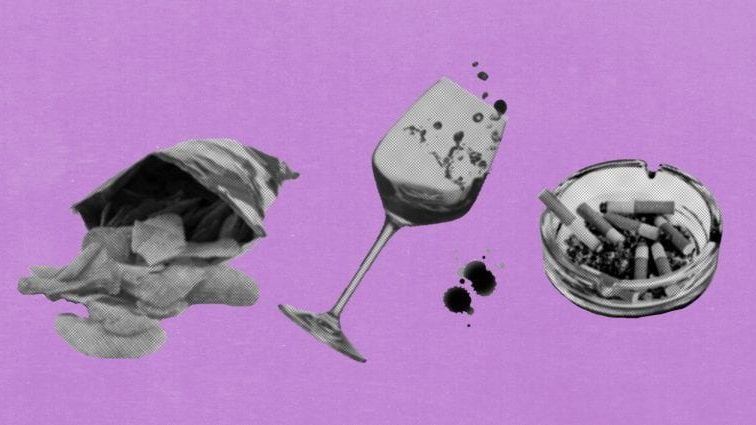
It’s 4 pm and you have just decided to take a quick break from work. You stretch and keep water for tea. While you do that, a jar of cookies on the table catches your attention. You pick out two cookies to go with your tea. But after the tea and cookie, you feel like your taste buds were overtaken by the sugar monster, you quickly reach out for some savoury snacks that you purposely tucked away on the shelf cupboard.
Out of sight, out of mind you had told yourself.
But, you decide to carry it back to your work desk and before you know it, you are halfway through the packet.
The Reality Of Snacking:
Though you might feel snacking is a very Indian concept, (considering the variety of snacks every state in India has to offer) I would stand to correct you. While only 67 per cent of Indians choose snacks over a meal, almost 90 per cent of the U.S. citizens eat at least one snack a day and most others eat several.
This problem of snacking is not new though. However, snacking has surely increased in manifolds because of the lockdown. As we work from home, it is almost inevitable that your hand reaches out for a snack or two during the day. Or while we Netflix and chill, it is almost comfy to have a snack around us. It is almost like when you are stressed or doing nothing, or want to take a break from doing something that required concentration you grab a snack.
It’s so strikingly similar to smoking: Had a stressful meeting, smoke! Need to focus on something important, smoke! Stressed out about something, smoke!
Even if you consider the gratification part of it, you deserve a snack or ice cream today because you had a good meeting. In an alternate situation, you would grab a smoke with your colleagues.
Also especially during the lockdown, since smoking is not permitted in most households in India, snacking has taken the spot.
How is snacking like smoking?
“Emotional states are dangerous for people who are trying to eat sensibly,” says Kent Berridge, professor of psychology and neuroscience at the University of Michigan. “If you’re unhappily stressed, food can act like hedonic self-medication.”
Berridge’s previously published research work explores the relation between liking and wanting something. These he explains are closely linked, but distinct reward processes in the brain. “We used to think liking and wanting were the same, but they’re not,” he explains. “They have different systems and different neurotransmitters, and so it’s possible to want something very strongly even in the absence of liking.”
Berridge also explains that the snacks that are available today are backed by the science of the reward system. “Modern snack foods are sweeter, fattier, saltier, and more rewarding,” he says.
This is similar to smoking because as explained by the American cancer society, when used in small amounts nicotine makes us feel pleasant and distracts us from unpleasant feelings. It also helps in improving mood.
TBC Explainer: Are your cravings real?
Why does it work?
First things first, snacking causes lesser guilt than smoking. Yes! Smokers do feel guilt. And snacking is less guilt-inducing than smoking. When you snack you tell yourself it’s ok and you can burn the excess fat anytime. But sadly, that does not happen. Additionally, a snack helps divert your mind and also keep you occupied on the side while you do something else. Smoking serves the same purpose for casual or social smokers. Additionally, from not eating a snack that’s probably available at home, we get a sense of self-control, the same applies to cigarettes.
So when does it become a problem?
Just the way it is essential to monitor if you are smoking too often or too much. It is important to keep an eye on your snack intake. Additionally, choosing the right kind of snacks is also important.
Snack is any food eaten outside of meal hours and one of the leading causes of obesity around the world. As mentioned earlier, snacks are engineered to satisfy craving which makes them a health hazard. The mere amount of sugar or salt present in the snack is enough to cause serious health problems. Especially snacks such as chips, fried goods, other packaged items pose a great deal of threat to our body.
This is also linked to one of the greatest public health challenge present globally – Obesity. Which is linked to other disorders such as diabetes, heart disease, cancer, and a host of other chronic and life-limiting illnesses. The World Health Organisation has also coined “globesity” to portray the global nature of the issue.
It is important to not let snacks become an escape or a stressbuster. It is more advisable to find coping mechanisms in meditation and exercise, which are both good for health and help in maintaining your body longevity.
